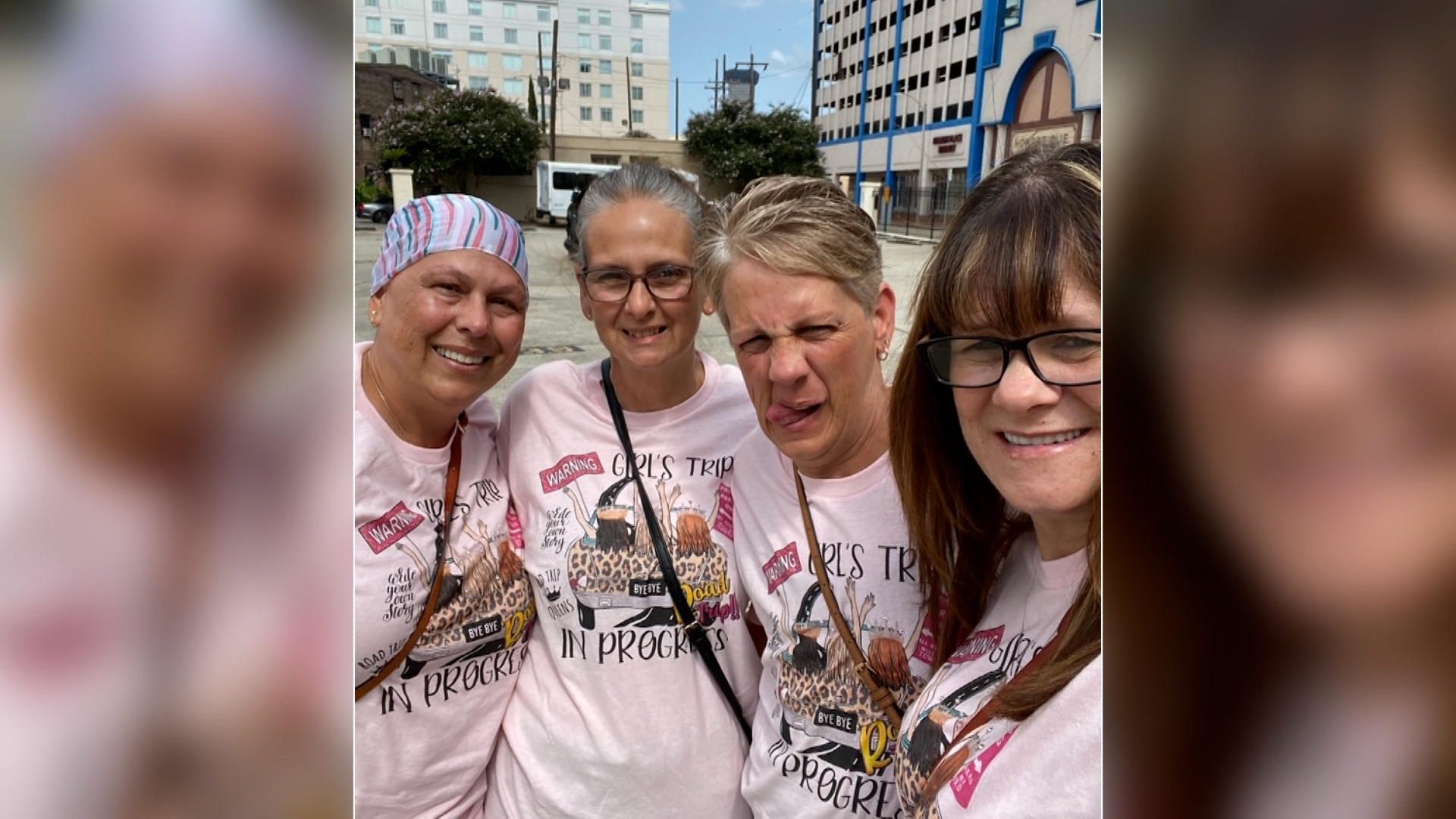NEW ORLEANS — Our genes carry some of the greatest secrets about our health and our futures. And for four sisters, unlocking those secrets became lifesaving. Now they're encouraging others to do the same.
They are four close sisters from the Westbank, who growing up, shared everything.
“Now we still got to share everything. We did the hand-me-downs. What doesn't fit me, I got to give it to them. What doesn't fit them, they giving it to me.” said Tracy Helmer, 48.
But not long ago, when the youngest, Tracy, got breast cancer, they all found out they share something else.
“It's the worst thing you ever want to hear. It's absolutely the worst thing,” said Christine Rios, 55.
Christine, Tracy, Shelley, and their oldest sister Lisa Lege, had wanted to get genetic testing since their grandmother and mother had female cancers. The insurance company created an obstacle.
Now, with Tracy, a third generation with cancer, it was approved.
They got genetic testing and all four were positive for mutations that put them at high risk for various cancers, including breast, ovarian, and even pancreatic. They decided to be proactive, scheduling preventive double mastectomies, hysterectomies, and oophorectomies to prevent cancer.
And that decision was lifesaving for Christine.
“I go get a blood test to make sure I'm OK to do a hysterectomy, and I get a test back. My CA125, it's a blood test. It was off the charts. I don't even know how long I had ovarian cancer because I had zero symptoms. Zero,” said Rios.
“I saved my sisters' lives, and that's all that mattered to me, was to save their lives,” said Helmer.
The sisters said if the insurance company would have allowed them to have the genetic tests sooner, not only would it have been better for their health to find the cancer sooner, but the overall costs would have been lower.
“And if the provider you're seeing isn't giving you the answers you want, and you feel like you need those tests, just ask for a referral,” explained Dr. Tara Castellano, a gynecologic oncologist at LSU Health Sciences Center New Orleans, who practices at The Cancer Center at University Medical Center.
Dr. Castellano encourages genetic testing and says you’re eligible if cancer is in your family.
“I tell my patients knowledge is power. The more knowledge you have, the more power you have over controlling your health, and the best cancer, the best way to cure cancer, is to prevent it,” said Dr. Castellano.
“It put a dent on all of us. It is, and that's why it's good for anybody, you know, that had cancer in their family, go get tested. Yeah, you know, because it could be you, just like it's us,” said Shelley Creppel, who tested positive for gene mutations but has not gotten cancer.
All of the sisters' children have gotten tested, or plan to when they reach 25 years of age. Both the girls and boys will be tested since those mutations put men at risk for prostate, breast, and pancreatic cancer.
“My fight is not over until the day I die,” said Rois.
“We gonna be fighting for the rest of our life,” said Creppel.
“We are,” Rois added.
The doctor says if your insurance company won't reimburse for genetic testing, some companies have options for affordable, or free testing.
► Get breaking news from your neighborhood delivered directly to you by downloading the new FREE WWL-TV News app now in the IOS App Store or Google Play.

